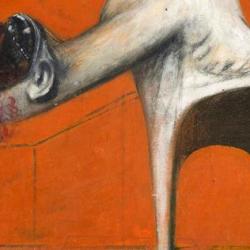In his Lectures on Godmanhood, Vladimir Solovyev isolated the inner contradiction of 19th-century conceptions of human nature.
On the one hand, “contemporary man is aware that he is internally free, deems himself to be higher than any external principle independent of him, asserts himself as the center of everything.” This is the basis for modern politics: “man is a being with unconditional significance, with unconditional rights and demands.”
At the same time, he is convinced by science that he is “only one infinitely small and disappearing dot on the circumference of the world” (80). As such, he cannot fully realize the independence that he claims. He is radically dependent and his value is conditional.
Thus the dilemma: “either man really has that unconditional value, those unconditional rights which he, in his inner subjective consciousness allows himself to have – in such case he must have also the possibility of realizing that value, those rights; or else man is only a fact, only a conditional and limited phenomenon that is present today but tomorrow may not exist, and in some few score years certainly will cease to exist; in that case let him be only a fact” (80-1).
If he is merely a fact, then “he is limited by the mechanism of external reality” and can do nothing greater than seek pleasure. And, “if he is not gay, then he can, perhaps, terminate that his factual existence with just as factual an end” (81).
It is, Solovyev argues, impossible to secure rights on the basis of an atheistic conception of man as a mere fact; yet human beings sense that they are something more. Science rejects those feelings of transcendence, even while politics places its whole trust in them. Atheistic anthropology is stuck in this dilemma, which it cannot solve.












